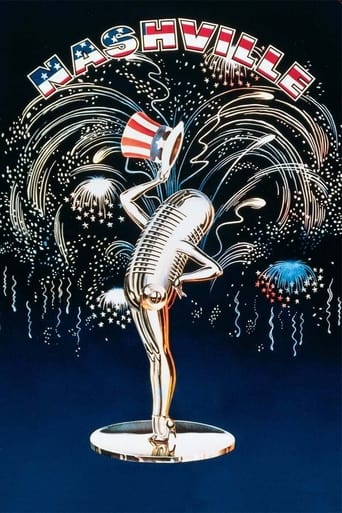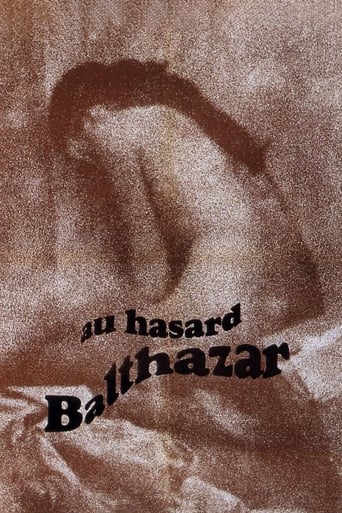


Au Hasard Balthazar
The story of a donkey Balthazar as he is passed from owner to owner, some kind and some cruel but all with motivations beyond his understanding. Balthazar, whose life parallels that of his first keeper, Marie, is truly a beast of burden, suffering the sins of humankind. But despite his powerlessness, he accepts his fate nobly.
-
- Cast:
- Anne Wiazemsky


Similar titles


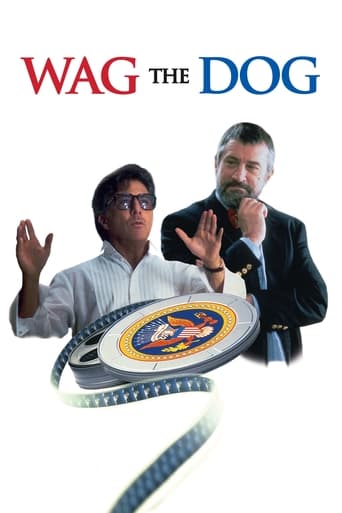


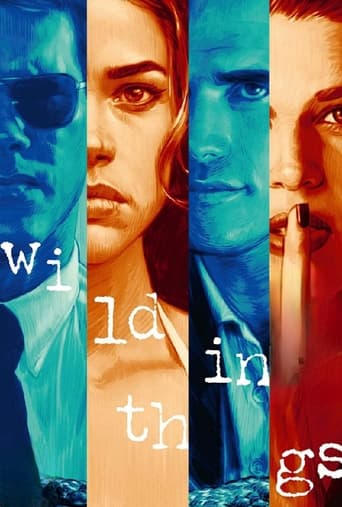

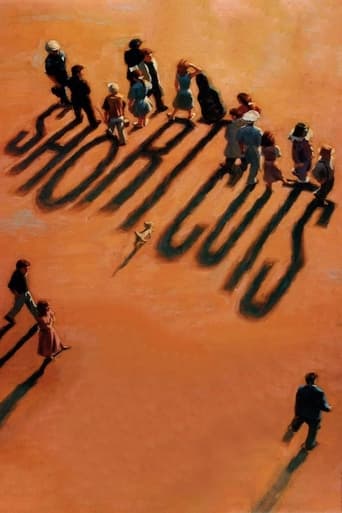

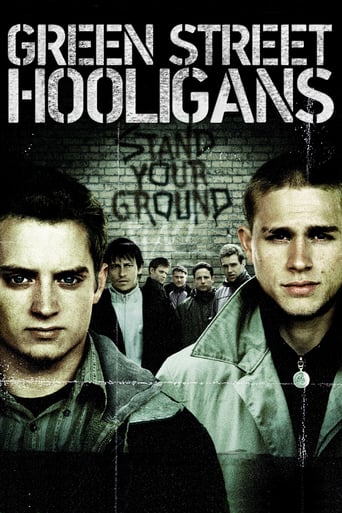
Reviews
Thanks for the memories!
Let's be realistic.
The film makes a home in your brain and the only cure is to see it again.
It's the kind of movie you'll want to see a second time with someone who hasn't seen it yet, to remember what it was like to watch it for the first time.
I've seen a lot of films about animals getting abused from that animals perspective. Some films that share this plot line can easily feel cookie-cutter after you've been exposed to it several times. I had a few concerns about that when I was about to go into this movie. Fortunately, however, "Au Hasard Balthazar" was not one of those examples. It turned out to be an exception. It was able to stand out amongst the rest of them. I don't think that it's flawless, but it's still a great movie.This film chronicles the life of an abused donkey named Balthazar as it passes from cruel owner to cruel owner. Meanwhile, the life of a young girl who originally owned it named Marie is chronicled as she gets badly treated by her abusive boyfriend. Both of their lives seem parallel to each other.On my re-watches, I noticed how the movie has a lot of religious symbolism. For instance, the fact that Balthazar goes through seven different owners could mean numerous things. It could represent the seven deadly sins or the seven sacraments. Also, Marie's name sounds similar to "Mary", the mother of Jesus. That's another example of symbolism. There's also the donkey's baptism that the kids try to do. It makes Balthazar seem divine. Also, the wreath of flowers put on Balthazar's head reminded me slightly of the Christ's crown of thorns. Also, the wine that Arnold drinks, and the bread that Gerard delivers could represent transubstantiation. There might be a few more examples from the movie that I missed. Some of the symbolism is a bit obvious, but I didn't mind that too much. I have a few explanations which explain Bresson's purpose for including them. The first one is that he could be trying to juxtapose religion with sin or simply good with evil. My second interpretation is that he might also be trying to establish Balthazar as a divine figure. My last interpretation is that he might be trying to inform the viewers that there is a special heaven for animals, as well as people.One of the things which set this film apart from many other films with similar plots is that it chronicles the hardships of Marie as well as Balthazar. When Balthazar was young, Marie was one of his original owners. Both of these characters lived relatively parallel lives. Balthazar got abused by each of his cruel owners, and Marie gets abused by her boyfriend Jacques who tried to force himself onto her in numerous scenes. However, the difference between the two of them is that Marie could defend herself to an extent, unlike Balthazar. Marie sometimes tried to avoid being around Jacques. Balthazar, on the other hand, was powerless, and he had very minimal reactions. Balthazar simply walked and waited for someone to give him order. The reason why he behaved this way was likely that he knew that his life consisted of him either feeling or not feeling pain. The most he did in the film was bray every now and then. It was almost like he couldn't do anything else to defend himself as he was powerless to his owners.The fate of Marie was not stated at the end of the film. After she gets stripped and beaten, we don't see her again. It's likely that she's going into a life of servitude. However, we do find out Balthazar's fate by the ending. After he's accidentally shot while Jacques uses him to steal certain items, he walks up to a sheep herd and spends his last minutes with them before he dies. There are a few interpretations I have for what Bresson intended by this scene. It could mean that Balthazar is trying to die in peace away from the abusive owners he encountered in his life. It could also mean that Balthazar is thinking of the life he could've had if he had kinder owners. Regardless of what Bresson intended by this scene, I still found it to be memorable. I enjoy movies with tragic endings, because they often linger with me long after viewing them (sometimes, I even like them more than happy endings). I appreciate directors who aren't afraid to step out of the comfort zones of audience members.The only major issue I had with this film was with the character of Jacques. I found him to be very oversimplified. In the first scene, he seemed like a nice kid. In the next scene when he's all grown up, however, he turns violent as he abuses Balthazar and forces himself on Marie. The movie doesn't explain how he became that way. It just skips his character arc and tells us "Jacques is a bad character, so you should dislike him", thus oversimplifying him. Also, most of the owners of Balthazar were either very underutilized or unmemorable. The only one who I found to be memorable was Arnold, but that was only because he was in the movie more.In conclusion, this was a pretty good movie. Robert Bresson did a great job with this film as he turned a tired plot into a memorable film that does a lot differently than other films. It could have been better, but it was still pretty good. This is the 2nd Bresson film I've watched (the first one being "A Man Escaped" which I enjoyed a bit more). I'm going to probably keep watching his films since he's proved himself to be a talented filmmaker.
I don't care how 'Arty' they want to 'claim' this film is... it's not. Quite frankly, I think those whom rate it so highly are all smoking the same dope. This film is so devoid of feeling, purpose, talent and sense (from ALL sides). As for representing the 'Seven Deadly Sins'... the biggest sin this film commits, is thinking anyone cares to sit through such utter feigned 'high brow' & 'deep thought' garbage for more than a minute. If you say "it's brilliant!!!", "A masterpiece!!!" and put it on a list of "Must see movies" or "Essentials" you are claiming the Emperor's clothes are made of the finest silks and satin. Only an idiot would call this deadpan, dead-faced, dead fish dive into desperation and deprivation to be 'entertainment' let alone 'art'. It's NOT deep... it's dumb and, needlessly, cruel. To demonstrate cruelty to an innocent is moving no matter how you film it. Bresson didn't 'move' you because of his 'brilliance', he angered you in the same way animal charities 'move' you to donate, by SHOWING you photos or scenes of beaten and abused animals. That is exploiting man's natural compassion for the weaker among us, not 'artfully' drawing it from you, but manipulating it from you. If I show you a picture of an, obviously, abused animal and you 'feel' a strong sense of sorrow, anger, loneliness, compassion or even tears just by viewing it... is my photo an example of 'Profound Art' or just a photo of a harsh reality? YOU may call it 'artful'... I call it 'awful'. This movie is a 90+ minute cheap shot and sucker punch to the gut I don't appreciate. And I am not quite sure he didn't actually abuse the donkey in the process. (there is no disclaimer) If I show you a 90 minute film of someone beating an animal... will you call that brilliantly moving and 'art' because it caused an emotional reaction in you? No... it's just raw cruelty. This whole movie is raw cruelty. That, my lost friends, is not 'art'.He squelches the voice and emotion of his actors just as the voice of the donkey will never be heard. We too are kidnapped, gagged and bound... but not by intrigue... we are prisoners of our compassion for the donkey to keep watching. That is emotional blackmail not 'craft'... not compelling drama, but abuse.If you are among those trying to go with the rest of the pretentious nuts and agree to it's 'beauty', you deserve the phony friends you reap in concert. I bet you claimed your first taste of caviar, Brie or drag of a cigarette was sheer heaven too. For those whom still don't know it... Picasso was playing with people in his abstracts... to expose the pretense in those that 'claimed' to know art when they saw it, when he was shelling out crap (on purpose because he claimed, they would buy ANYTHING that had his name on it, no matter what it looked like... he was right), they shouted, "Genius!!!" (they still do). It just goes to show, that there will always be people willing to eat feces, smile and recommend it to others if some famous chef told him it was fantastic and required an "acquired taste" or a "refined palate" to appreciate it. To love and praise this film is no different. The Emperor IS naked as a J-bird, this film IS crap and that is all there is to it. Feel free to bloviate, eat it up and wax poetic among yourselves. This movie is strictly for the psychedelics crowd, the heavily sedated and the barbarous at heart.Beauty may be in the eye of the beholder, so if you behold it in such high esteem... go ahead and hold it... you can keep it. Go buy a late Picasso and tell your 'friends' what he was trying to 'say' as you PRETEND to KNOW. Puff on your hookah and tell abstract poems to each other in a bookstore basement. As you feel good and lofty about yourself because you think YOU were one of the few of the elite to be able to 'get' this movie's plot and message and the director's 'purpose and methods'... know this... it is simple to 'get'... I GET it... the question is... do we care to GET it in this way? is there value in it? For vacuous movie snobs and the curiously vicious... obviously. For the rest of us... NO. NO. NO!!!The donkey knows what he is and would claim as much, given the chance, as for the jackasses who claim to know art... not so much. I feel sorry for the donkey having been forced to be a part of this pathetic excuse for a movie(or even as a mental exercise), as he was the only endearing or engaging thing this film contained and that was strictly by God's design, not Bresson's.In the end, I feel as abused by Bresson as the donkey himself.
A film tends to be judged by its mass appeal: films cost lots of money and therefore film makers normally want them to be seen by lots of people. But that does not mean that film SHOULD be judged by its mass appeal: you do not judge the value of the US publishing industry by the number of murders in westerns and thrillers. Robert Bresson used the medium of film for unusual purposes. His minimalism stimulates your attention: you scan gestures, looks and shabby interiors for clues. Sounds – a key turning in a lock, a tram passing, a donkey's braying, brief snatches of music - take on a heightened meaning. A few seconds of classical music are often heard when there is a 'window of opportunity' for a human being. True, Bresson demands a lot from the viewer, and with some films I just gave up; but I prefer that to the attitude of many film directors who make me feel insulted: another simpleton has been duped into paying for a piece of trash providing two hours of oblivion. Bresson disliked acting, as it got in the way of what he wanted to express with his films; instead he worked with amateurs, 'models' who were not allowed to dramatize or psychologize. The most extreme example of his approach is 'Au hasard Balthasar', where the protagonist is a donkey called Balthasar subjected to and witnessing human vices. 'Au hasard' means at random, and all the cruelty seems random. But I wonder, with my imperfect French, whether au hasard in this case could not be a 'call to action': 'au secours' means help!, so maybe 'take your chance (in life)' is a possible translation here. Although I'm familiar with Bresson's unusual approach it took me a couple of viewings to understand that the 'story' and the 'characters' mean even less in this film than in others. There is a story –Balthasar's successive misadventures and occasional rebellions, ending in death – but it is not a very coherent one, more a succession of scenes illustrating various forms of human shortcomings and nastiness, personified by a variety of well, models. All of this is just there to bring out the patient suffering of the donkey, who in the process becomes, as one of the few decent people in the film says, 'a saint' and dies a painful yet peaceful death. You can see the animal as a symbol of Christ, as many have done, and for a catholic like Bresson it would be a 'natural' symbol. But I'm always wary about symbolism in film - you'd end up needing a user's manual ('this actually means that'), and a film which requires a manual is no good. Rather, Bresson stimulates a sort of hyper-awareness of the world by the way he shows it. Balthasar's various owners impose a role on the donkey, who usually puts up with it but never becomes a satisfactory actor from a human point of view ('good for you', I always think when a cat refuses to obey). There is a memorable scene where Balthasar is 'employed' in a circus (soon to be kicked out) and is led past cages with other animals. They eye each other; we are briefly in their world: trapped, but never willing servants. When the humans create havoc in the film, the camera zooms in on the donkey's profile, quite still – the eye of the storm, you might say. I do not value this film quite as highly as 'Un condamné à mort s'est échappé' or 'Pickpocket', maybe because sometimes I hear, so to speak, Bresson's brain creak as he works on his message. But the last couple of minutes are perfect. My eyes start pricking. Not so much because the poor animal is a dying a slow yet beautiful death, on a sunlit hillside, surrounded by placid sheep. Or because of any implied symbolism (the Redeemer dying for His flock). My best explanation is a 'parallel', the end of a poem by the Scottish poet Sorely MacLean about the mountains of the Isle of Skye: ' beyond misery, despair, hatred, treachery,/ beyond guilt and defilement: watchful,/ heroic, the Cuillin is seen/ rising on the other side of sorrow.'
I would give this film 7 1/2 stars. It is a noble effort by Bresson but marred by his insistence on getting "natural" performances by amateurs. From what I have gleaned, it took numerous takes to get "natural" actions and reactions from the actors. Even the donkey does not always come across as purely natural but does seem charming under what must have been stressful conditions for it. What was intended to be authentic ends up wooden and disjointed. This breaks the natural flow of the narrative progression and ultimately makes watching the film somewhat of a task rather than a pleasure. Pasolini was much more successful in his use of amateurs.Having said this, the film's strength is its story. The elevation of the everyday, of mundane lives that seem to be trapped by futility, and the heartbreaking tale of a humble creature subjected to the whims of those downtrodden by life. Indeed, the examination of what we would see as the joys and sorrows of such a creature is what makes this film worthy of viewing. To know and view all life as having value is central to this film's importance. Whether Balthazar is a Christ figure or not, he shares in the mystery of suffering and redemption and is indeed a cinematic Saint.

